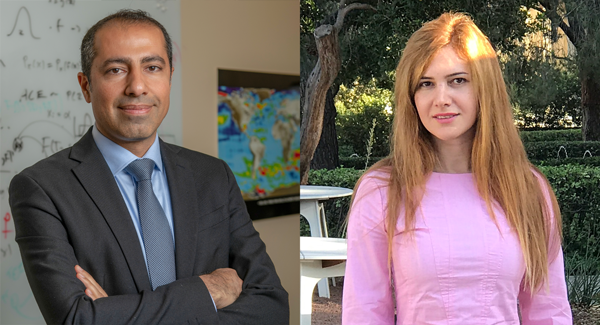American Society of Civil Engineers Recognizes AghaKouchak and Alborzi with the Norman Medal

April 29, 2022 – A research paper co-authored by Amir AghaKouchak, UC Irvine professor of civil and environmental engineering
The award-winning research, “Levee Fragility Behavior Under Projected Future Flooding in a Warming Climate,” was published in the December 2020 issue of the Journal of Geotechnical and Geoenvironmental Engineering. AghaKouchak
AghaKouchak studies how climate change and variability influence extreme events, such as flood, drought and heatwaves, and compound
In this research, the authors incorporated a set of historical and projected flood levels into a sophisticated model to numerically evaluate the fragility
“There are many publications on how extreme rainfall and temperature are expected to change in the future,” said AghaKouchak. “But linking the projected changes to actual societal impacts is not straightforward. In this paper, our overarching goal was to bridge the gap between climate science and engineering through linking future extremes to potential physical failure of our infrastructure systems.”
The research was funded by the National Science Foundation.
– Lori Brandt
